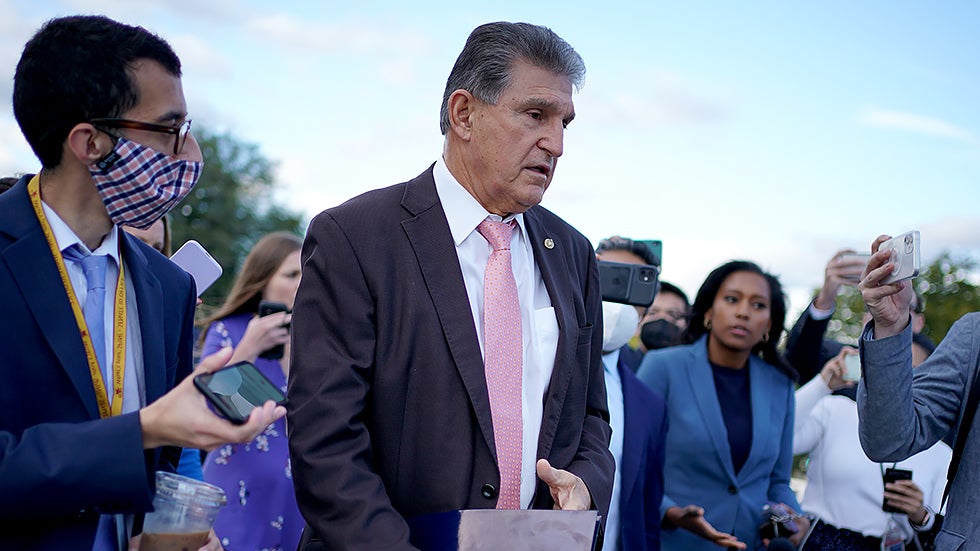Sen. Joe Manchin Joe ManchinOn The Money — Biden’s battle with inflation Telehealth was a godsend during the pandemic; Congress should keep the innovation going Biden gets inflation gut punch MORE (D-W.Va.) expressed opposition to a provision in Democrats’ climate and social spending bill that would give additional tax credits for union-built electric vehicles.
Joe ManchinOn The Money — Biden’s battle with inflation Telehealth was a godsend during the pandemic; Congress should keep the innovation going Biden gets inflation gut punch MORE (D-W.Va.) expressed opposition to a provision in Democrats’ climate and social spending bill that would give additional tax credits for union-built electric vehicles.
A version of the legislation released by the House would provide customers a $7,500 tax credit for new electric vehicles, with an additional $4,500 credit if the vehicle is made in the U.S. by union workers.
Manchin objected to the $4,500 credit for union-built vehicles.
“When I heard about this, what they were putting in the bill, I went right to the sponsor [Sen. Debbie Stabenow Deborah (Debbie) Ann StabenowMedicare beneficiaries must have the option to recover safely at home Democrats try to back Manchin off killing paid family leave proposal In reconciliation, climate-smart agriculture and forestry is the way forward MORE, D-Mich.] and I said, ‘This is wrong. This can’t happen. It’s not who we are as a country. It’s not how we built this country, and the product should speak for itself,’ ” Manchin told Automotive News during a Toyota event in his home state.
Deborah (Debbie) Ann StabenowMedicare beneficiaries must have the option to recover safely at home Democrats try to back Manchin off killing paid family leave proposal In reconciliation, climate-smart agriculture and forestry is the way forward MORE, D-Mich.] and I said, ‘This is wrong. This can’t happen. It’s not who we are as a country. It’s not how we built this country, and the product should speak for itself,’ ” Manchin told Automotive News during a Toyota event in his home state.
“We shouldn’t use everyone’s tax dollars to pick winners and losers. If you’re a capitalist economy that we are in society then you let the product speak for itself, and hopefully, we’ll get that, that’ll be corrected,” he added.
Democrats can’t afford to lose a single vote on their legislation because of the 50-50 split in the Senate, so they need to win Manchin’s support.
Automakers with nonunion workforces like Honda, Toyota and Tesla have criticized the additional credit as unfair. Meanwhile, the United Auto Workers union has praised it as supportive of good working conditions.
The opposition to the union-built credit is Manchin’s latest stand against climate-focused provisions in the legislation.
His opposition ultimately led to the removal of a program aimed at using both incentives and penalties to get the country to shift toward clean energy sources for electricity.
He also expressed skepticism about a fee on oil and gas companies for emissions of the potent gas methane. This program has since been changed to include incentives for reducing methane releases, with some penalties attached.
